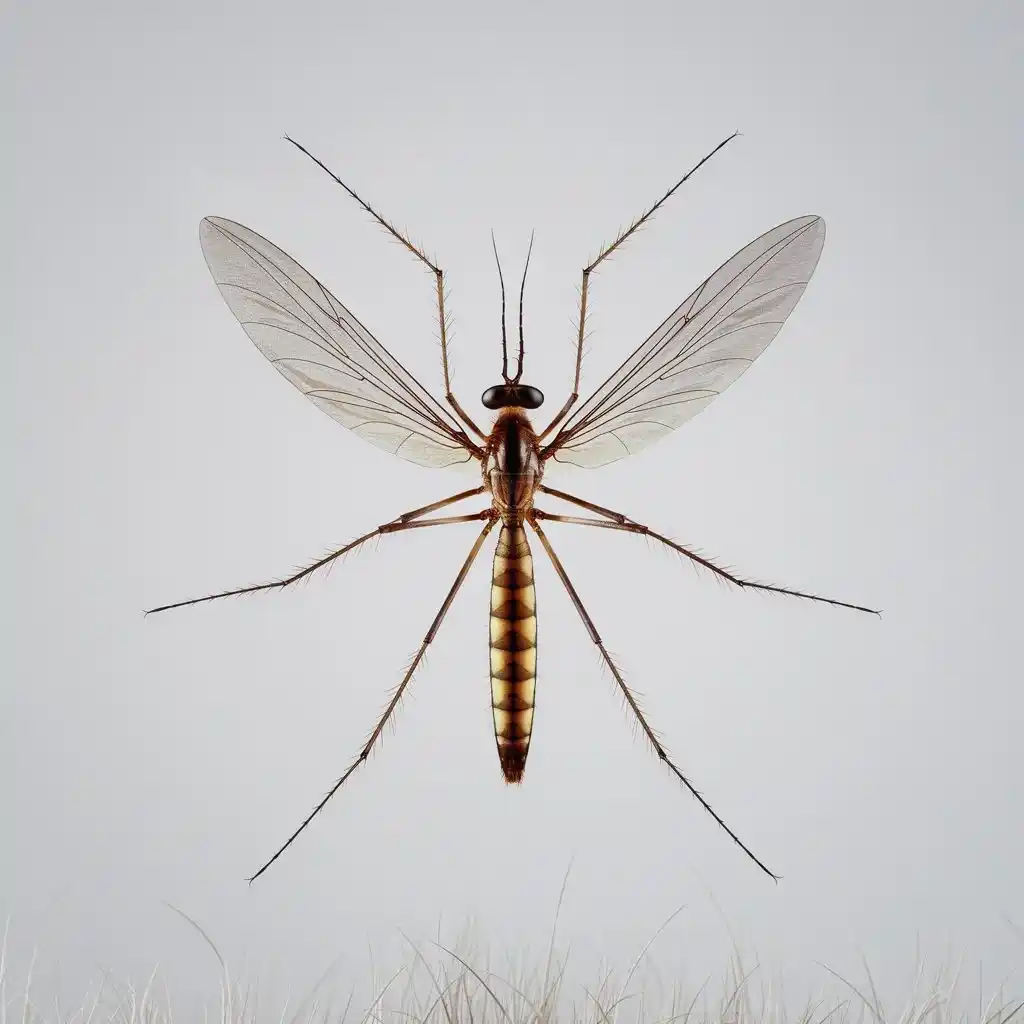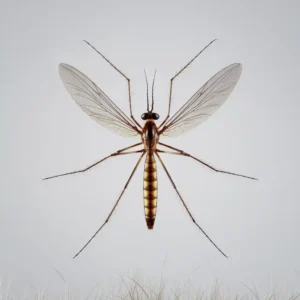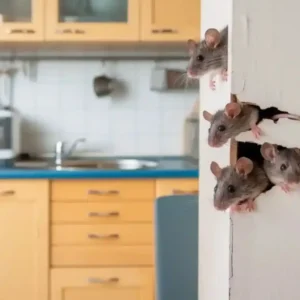The mosquito eater is often misunderstood, despite its common association with mosquito control. Its name leads many to believe that it is an enemy of mosquitoes, but the truth is quite different. In this article, we will dive deep into mosquito eaters, exploring their real behavior, role in the ecosystem, and their true relationship with mosquitoes.
1. What Is a Mosquito Eater?
The term mosquito eater can be misleading, as these insects do not actually eat mosquitoes. Instead, mosquito eaters are commonly known as crane flies, a type of insect belonging to the family Tipulidae. Despite their name, they are completely harmless to humans and pets, as they do not feed on blood or bite. Instead, they consume nectar and plant matter, and they can often be found fluttering around gardens, grassy fields, or wooded areas. Let’s take a deeper dive into what a mosquito eater truly is, and also explore the fascinating life cycle of this insect.
The Mosquito Eater’s True Identity
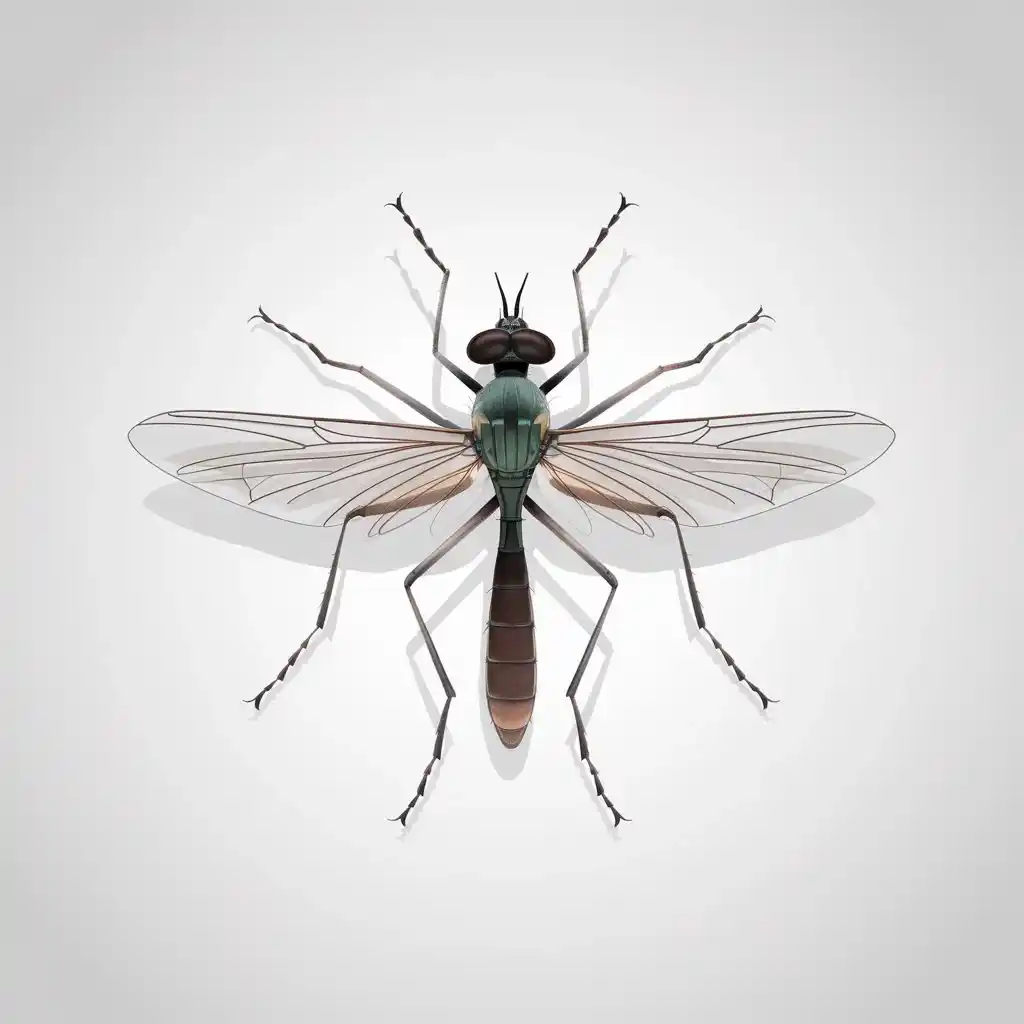
While mosquito eaters are often mistaken for mosquitoes, they are actually quite different. Here are a few ways to distinguish the two:
- Size and Appearance: Mosquito eaters (crane flies) are generally larger than mosquitoes, with long, delicate legs and transparent wings. Some species even have wingspans that can reach up to 2 inches or more!
- Feeding Habits: Unlike mosquitoes, which bite and feed on blood, mosquito eaters feed on nectar from flowers. They do not bite humans or animals.
- Mouthparts: Mosquitoes have specialized mouthparts (proboscis) for piercing skin and sucking blood. Mosquito eaters, however, have mouthparts designed for feeding on plant matter, like nectar, which means they don’t pose any threat to you or your pets.
The Life Cycle of a Mosquito Eater
The mosquito eater, or crane fly, goes through several stages during its life cycle, much like other insects. From egg to adult, each stage plays a vital role in its development. Let’s break down the typical life cycle of a mosquito eater:
Stage 1 – Egg
The life cycle of the mosquito eater begins with the egg stage. Female crane flies typically lay their eggs in moist environments, such as soil, rotting plant material, or areas with decaying organic matter. The eggs are small and cylindrical in shape and are usually laid in clusters, ready to hatch once the conditions are right.
- Eggs are laid near damp areas like grassy fields, gardens, or forest floors, as the larvae need moisture to survive.
Stage 2 – Larva
Once the eggs hatch, the larvae (often called wrigglers) emerge. The mosquito eater larvae are worm-like creatures that are usually pale, white, or light brown. These larvae typically live in the soil or decaying organic matter, where they feed on plant roots, decaying plant material, and other organic material in the soil. This stage can last for several weeks, depending on the environment and the species of crane fly.
- Larvae are important decomposers, helping break down organic material in the soil, which enriches the soil and promotes plant growth.
- Food sources for larvae: They consume rotting leaves, decaying plant matter, fungi, and sometimes even small plant roots.
Stage 3 – Pupa
After the larval stage, the mosquito eater transitions into the pupal stage. During this stage, the larvae undergo a transformation (known as metamorphosis) and form a protective casing around themselves, called a pupal case. This stage is similar to the cocoon stage in butterflies.
- The pupal stage typically lasts for several weeks. The mosquito eater is undergoing internal changes, including the development of wings and legs that it will use as an adult.
- Pupae are stationary and do not feed during this stage. They rely on the energy stored from their larval stage to fuel their metamorphosis.
Stage 4 – Adult (Mosquito Eater)
The final stage of the mosquito eater’s life cycle is the adult stage, which is what most people recognize as the mosquito eater. After undergoing complete metamorphosis, the adult emerges from the pupal case. The adult crane fly has long, spindly legs, delicate wings, and a slender body. It typically spends its time flying around searching for food sources such as nectar from flowers.
- Adults do not feed on mosquitoes. Instead, they live off nectar and plant matter, making them harmless to humans and animals.
- The lifespan of the adult mosquito eater is relatively short, usually lasting only a few weeks, during which time they mate and lay eggs, completing the life cycle.
The Mosquito Eater’s Role in the Ecosystem
While mosquito eaters may not directly impact mosquito populations, they do play an important role in the ecosystem. Their life cycle and feeding habits provide benefits to both the environment and the plants around them:
- Decomposers: The larvae of mosquito eaters feed on decaying organic matter and help break it down, which improves soil health.
- Pollinators: As adults, mosquito eaters visit flowers and feed on nectar, contributing to pollination and the reproduction of plants.
- Natural Pest Control: Although mosquito eaters don’t directly feed on mosquitoes, they play a role in controlling other garden pests. During their larval stage, mosquito eaters help reduce populations of pests like aphids and small insects that can harm your plants. However, for a more effective and comprehensive approach to managing mosquito and pest populations, check out our guide on the Best Mosquito Control For Yards, which offers a variety of solutions to keep your garden healthy and mosquito-free.
2. Do Mosquito Eaters Eat Mosquitoes?
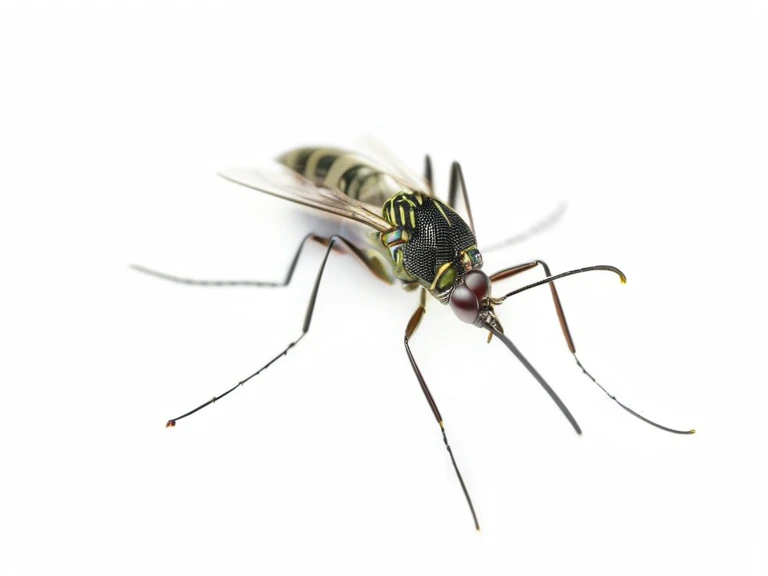
A common question people have is whether mosquito eaters actually consume mosquitoes. The answer is simple: no.
- While mosquito eaters may feed on mosquito larvae, they do not actively hunt adult mosquitoes.
- They are more interested in feeding on nectar from plants.
- Mosquito eaters might occasionally consume small larvae but their primary food source is not mosquitoes.
3. Mosquito Eater vs Mosquito: What’s the Difference?
In this section, we will explore the key differences between a mosquito eater and a mosquito.
- Mosquito eaters are larger and more delicate, with long legs and slender bodies, while mosquitoes are smaller and more robust.
- A mosquito eater does not bite or sting, whereas a mosquito feeds on blood.
- The two insects serve different roles in the ecosystem, with mosquito eaters being largely harmless and more focused on feeding on plants.
4. What Does a Mosquito Eater Eat?
Let’s take a closer look at the diet of a mosquito eater.
- The mosquito eater primarily feeds on nectar and plant matter.
- They might occasionally eat mosquito larvae during their development stages, but this is not their primary food source.
- Their diet consists mostly of sugary plant fluids, which they extract from flowers.
5. How Effective Is a Mosquito Eater in Mosquito Control?
While mosquito eaters are often touted as helpful for controlling mosquitoes, they are not as effective as many believe.
- Mosquito eaters do not have any significant impact on reducing adult mosquito populations.
- They may consume mosquito larvae, but this does not drastically lower the number of adult mosquitoes.
- For actual mosquito control, methods like mosquito repellents and removing breeding grounds are far more effective.
6. The Role of a Mosquito Eater in the Garden Ecosystem
Now, let’s look at how the mosquito eater contributes to the garden ecosystem.
- Mosquito eaters help control smaller garden pests by feeding on insects like aphids and other soft-bodied insects.
- They also play a role in pollinating plants while feeding on nectar.
- Though they are not a major predator of mosquitoes, they are beneficial for general pest control in the garden.
7. Can a Mosquito Eater Be Used as a Mosquito Repellent?
Can a mosquito eater serve as a mosquito repellent? Not quite.
- The mosquito eater does not produce any substances that repel mosquitoes.
- Their presence does not actively drive mosquitoes away.
- If you’re looking for effective mosquito control, consider using mosquito repellents, mosquito nets, or creating a mosquito-free zone by eliminating standing water.
8. Are Mosquito Eaters Dangerous?
Despite their intimidating name, mosquito eaters are completely harmless to humans and pets.
- Mosquito eaters do not bite or sting.
- They do not pose any health risks to humans or animals.
- Their long legs and fragile bodies make them more delicate than dangerous, and they simply feed on nectar and small insects.
9. Do Crane Flies Eat Mosquitoes?
Since mosquito eaters are often confused with crane flies, it’s important to address whether crane flies eat mosquitoes.
- Crane flies, like mosquito eaters, do not consume adult mosquitoes.
- They may feed on mosquito larvae, but they primarily feed on nectar.
- Understanding the difference between mosquito eaters and crane flies helps clarify their roles in pest control.
10. Why a Mosquito Eater Isn’t a Solution for Mosquito Control
In conclusion, relying on mosquito eaters as the primary solution for controlling mosquitoes isn’t practical.
- While they may help with small larvae populations, mosquito eaters are not designed to tackle adult mosquitoes.
- For effective mosquito control, use targeted methods such as mosquito repellents, eliminating standing water, and using pesticides when needed.
- The role of the mosquito eater in pest management is minimal compared to other, more effective methods.
Understanding Mosquito Eaters: A Summary of Facts
Mosquito eaters are fascinating creatures that play a specific role in nature, but they are not the miracle solution to your mosquito problems. Though they can consume mosquito larvae during certain stages of their life, their primary diet consists of nectar from flowers, and they don’t feed on adult mosquitoes. If you’re dealing with a mosquito infestation, mosquito eaters alone won’t help.
To manage mosquitoes effectively, use a combination of pest control strategies, including mosquito repellents, eliminating breeding grounds, and considering professional pest control services.
FAQs
1. Do mosquito eaters really eat mosquitoes?
No, mosquito eaters primarily feed on nectar and occasionally mosquito larvae, but they do not actively hunt adult mosquitoes.
2. What do mosquito eaters eat?
Mosquito eaters mainly feed on nectar from flowers, and occasionally on mosquito larvae during their developmental stages.
3. Are mosquito eaters harmful to humans or pets?
No, mosquito eaters are harmless. They do not bite or sting and are safe for humans and pets.
4. Can a mosquito eater help control mosquitoes?
While a mosquito eater might consume mosquito larvae, it does not effectively control adult mosquitoes. Use mosquito repellents or pesticides for better control.
5. Are crane flies the same as mosquito eaters?
No, while they look similar, crane flies and mosquito eaters are different. Both feed on nectar but do not feed on adult mosquitoes.

